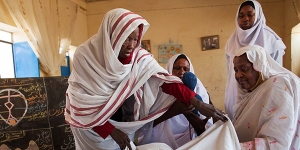LGBTI Rights: Global Activism, U.S. Diplomacy
As lesbian, gay, bi-sexual, transgender, and intersex (LGBTI) communities campaign for constitutional rights across the world, USIP gathered the United States’ new special envoy on the issue, along with international LGBTI activists, to discuss the movement and its future. Ambassador Randy Berry joined campaigners from South Africa, Ireland, Fiji, and Grenada in the May 26th forum, which was co-hosted by the International Institute for Democracy and Electoral Assistance (International IDEA).
Read the event coverage, After Ireland Vote: Various Roads to LGBTI Rights.
While only a few countries now protect LGBTI rights in their constitutions, the inclusion of those protections increasingly has become an indicator of the strength and consolidation of democracy. And constitution-building processes in various countries have opened a social and political space of tolerance and equality within which gender minorities are continuing to claim their rights.
Welcoming Remarks:
- Nancy Lindborg
President, U.S. Institute of Peace
Key Note Address:
- Randy Berry
Special Envoy for the Human Rights of LBGT Persons, U.S. Department of State
Panelists
- Sumit Bisarya
Constitution Building Programme
International Institute of Democracy and Electoral Assistance - Michael Dafel
Doctoral Candidate, University of Cambridge - Eric Gitari
Executive Director, National Gay and Lesbian Human Rights Commission in Kenya - Monine Griffith
Director, Marriage Equality, Ireland - Richie Maitland
Co-founding Director, Groundation Grenada - Michelle Reddy
Programme Director, Fiji Women’s Rights Movement - Jason Gluck, Moderator
Senior Program Officer, Rule of Law, U.S. Institute of Peace






